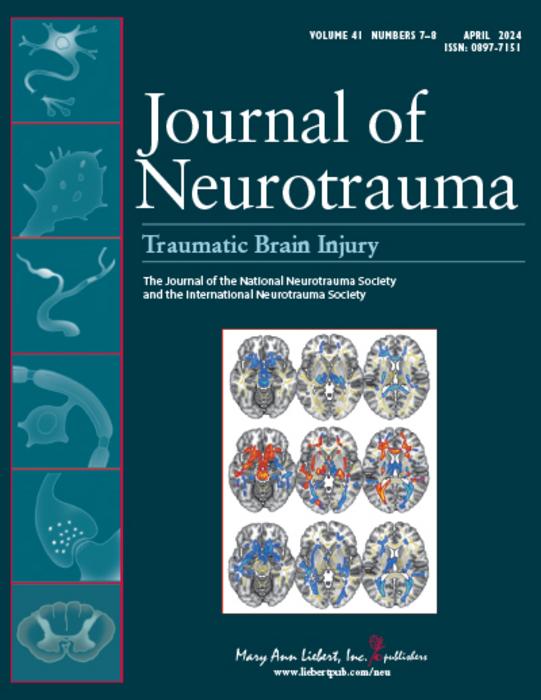New Rochelle, NY, May 13, 2024—A new study in the peer-reviewed Journal of Neurotrauma found that more than 30% of patients with traumatic brain injury (TBI) for whom withdrawal of life sustaining treatment (WLST) was not performed recovered at least partial independence. Click here to read the article now.
Yelena Bodien, PhD, from Massachusetts Hospital and Harvard Medical School, and coauthors, cautioned that death or severe disability is a common outcome when the probability of WLST is high. The authors investigated the potential for survival and recovery of independence after acute TBI in patients who died after WLST. They compared patients with acute TBI who died after WLST to those with acute TBI for whom WLST was not withdrawn.
“Our results support recent calls for a cautionary approach toward early WLST after acute TBI and suggest that a lifetime in a vegetative state or with lower severe disability is not a common outcome, even after a very serious injury,” stated the investigators.
“My congratulations to Dr. Bodien and colleagues for this carefully articulated communication. Their findings have important implications for the practice of critical care medicine around the world. Everyone who is involved in the care of patients with acute ‘severe’ traumatic brain injury should read this article carefully,” says David L. Brody, MD, PhD, Editor-in-Chief of Journal of Neurotrauma.

Credit: Mary Ann Liebert, Inc.
New Rochelle, NY, May 13, 2024—A new study in the peer-reviewed Journal of Neurotrauma found that more than 30% of patients with traumatic brain injury (TBI) for whom withdrawal of life sustaining treatment (WLST) was not performed recovered at least partial independence. Click here to read the article now.
Yelena Bodien, PhD, from Massachusetts Hospital and Harvard Medical School, and coauthors, cautioned that death or severe disability is a common outcome when the probability of WLST is high. The authors investigated the potential for survival and recovery of independence after acute TBI in patients who died after WLST. They compared patients with acute TBI who died after WLST to those with acute TBI for whom WLST was not withdrawn.
“Our results support recent calls for a cautionary approach toward early WLST after acute TBI and suggest that a lifetime in a vegetative state or with lower severe disability is not a common outcome, even after a very serious injury,” stated the investigators.
“My congratulations to Dr. Bodien and colleagues for this carefully articulated communication. Their findings have important implications for the practice of critical care medicine around the world. Everyone who is involved in the care of patients with acute ‘severe’ traumatic brain injury should read this article carefully,” says David L. Brody, MD, PhD, Editor-in-Chief of Journal of Neurotrauma.
About the Journal
Journal of Neurotrauma is an authoritative peer-reviewed journal published 24 times per year in print and online that focuses on the latest advances in the clinical and laboratory investigation of traumatic brain and spinal cord injury. Emphasis is on the basic pathobiology of injury to the nervous system, and the papers and reviews evaluate preclinical and clinical trials targeted at improving the early management and long-term care and recovery of patients with traumatic brain injury. Journal of Neurotrauma is the official journal of the National Neurotrauma Society and the International Neurotrauma Society. Complete tables of content and a sample issue may be viewed on the Journal of Neurotrauma website.
About the Publisher
Mary Ann Liebert, Inc. is a global media company dedicated to creating, curating, and delivering impactful peer-reviewed research and authoritative content services to advance the fields of biotechnology and the life sciences, specialized clinical medicine, public health and policy, and technology and engineering. For further information, please visit the Mary Ann Liebert, Inc. website.
Journal
Journal of Neurotrauma
DOI
10.1089/neu.2024.0014
Method of Research
Observational study
Subject of Research
People
Article Title
Recovery Potential in Patients Who Died After Withdrawal of Life-Sustaining Treatment: A TRACK-TBI Propensity Score Analysis
Article Publication Date
13-May-2024




